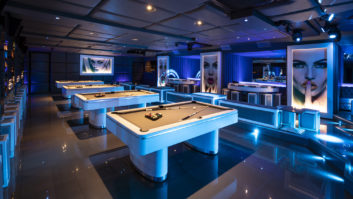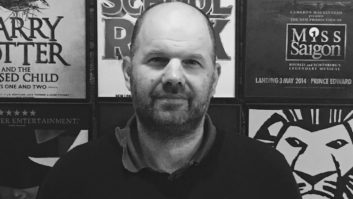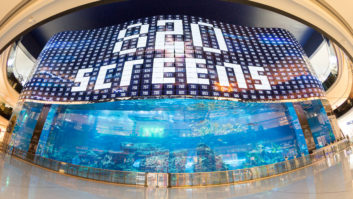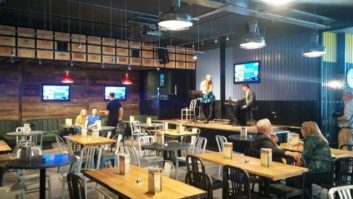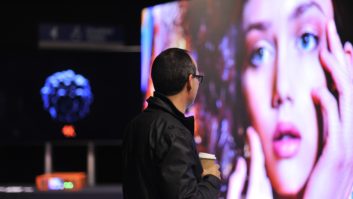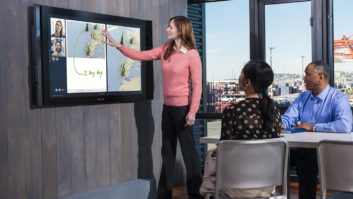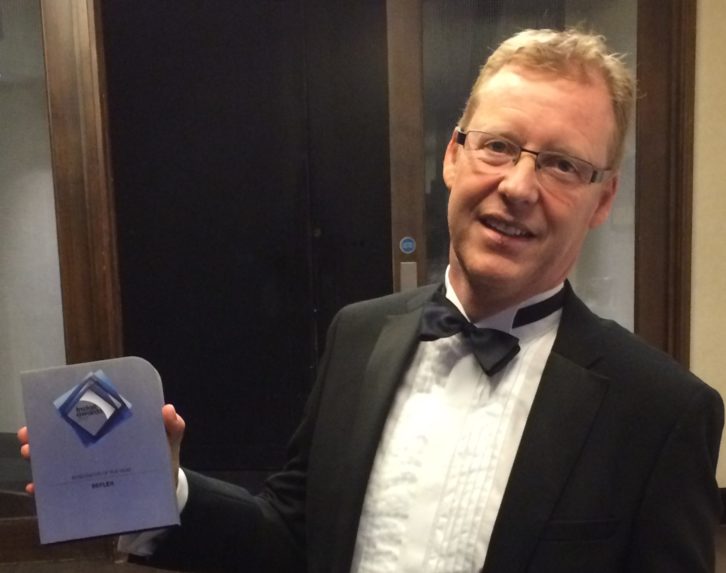
Andy Read, sales and marketing director at Reflex, discusses the ever-growing need for more flexible spaces and the importance of utilising an integrator’s knowledge and experience
What’s your geographic reach?
We cover the UK but concentrate on London and the Thames Valley. In the higher education sector, we work closely with many of the leading universities in London and right along the M4 corridor to Cardiff. On the corporate side, most of our customers have head offices around London and the Thames Valley but we support regional offices across the UK.
You mainly work across higher education, public sector and corporate. Are you seeing any particular trends across those sectors?
In all sectors we are seeing the effects of more agile and collaborative working practices driving the need for more and more flexible meeting spaces with the ability to enable remote participation.
In the higher education sector we see the same requirements for meetings and also the introduction of collaborative teaching facilities both to further engage the students in campus and, in conjunction with improved streaming techniques, to increase the efficiency and quality of sessions for remote participants.
What projects are you particularly proud of?
Many, recent examples including: a consultant-led project for a global management consulting company based in Canary Wharf; a complete new university building fit-out in London featuring several unique collaboration solutions; and a giant teaching laboratory using AV over IP to enable up to 12 lectures to be delivered to 240 students simultaneously in one open space.
What technologies are particularly hot in the corporate sector right now?
The ready availability of high-quality video conferencing platforms on laptops and tablets has driven up the demand for high-quality and flexible USB camera and microphone solutions.
Improved collaborative software is continually increasing demand for interactive flat panel displays, and the constant re-division of office space has created high demand for sound masking systems.
Increased performance and reducing prices of AV over IP systems are making them increasingly interesting for organisations wanting to build-in future flexibility.
A dramatic change in price-performance of indoor LED has now triggered the start of a trend towards High Resolution LED Walls being used in larger presentation and meeting facilities that would previously have used projection.
And what’s your particular favourite and why?
I like the new miniature VC cameras with integrated microphones that use AI to maintain the best-framed image regardless of the room or audience size.
But, having been involved with large screen display since the original CRT projectors, my favourite technology has to be indoor LED; I think it will eventually transform the large screen display market in the same way that plasma/LCD did 20 years ago.
Are you facing any particular challenges in the industry?
Nothing new, there are always some companies prepared to quote for work at unsustainably low margins which undermine the value of the integrator’s role.
Has the role of an integrator changed in recent years?
Not really, the range of technical knowledge required has increased further on the IT/networking side but the fundamentals of understanding customer needs, system design, project management, installation and on-going support remain the same.
Are you seeing more demand for managed services?
In certain sectors where pressure has been put on headcount, we are seeing an increased demand for system monitoring as well as preventative and reactive maintenance services.
Why should end users employ an integrator rather than attempt to go it alone?
We believe an integrator’s broad experience is not something a user can generally replicate. System designs can often introduce hidden pitfalls with product operation and interactions that are not easily predicted from specifications. Installations can also be physically challenging and require a high level of co-ordination with other parties, which is difficult to manage without the experience gained through management of many previous AV projects.
At Reflex we complete hundreds of projects each year; it’s just not possible for a user to build up the same level of experience and exposure to new products or to leverage the same level of expert support from the equipment manufacturers.
At the end of the day, engaging a good AV integrator should result in a better final solution while saving the user time, money and a great deal of stress in the process.
What are some of the biggest mistakes made by end users when it comes to AV?
At the design stage – trying to cater for too wide a scope of user’s perceived requirements rather than focusing on the essentials, resulting in overly complicated systems that are hard to use and risk losing the trust of the day-to-day users.
In the fulfilment stage – in any new build or refurbishment project, not allowing enough time after the builders’ works have completed for full commissioning and user training on new systems
Finally, what are Reflex’ plans for the future?
We are seeing continual acceleration in the way that communication and collaboration is being used to develop and improve efficiency in working practices. This, in turn, puts ever changing demands on the functionality of meeting and teaching spaces.
We see a bright future in continuing to offer our customers the high level of flexible and friendly service they expect from us, while continually adopting new technologies and evolving new innovative solutions to help them meet these challenges.
